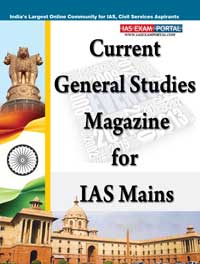Current General Studies Magazine: "Legal checks to political vandalism" October 2015

Current General Studies Magazine (October 2015)
General Studies - II "Polity Based Article" (Legal checks to political vandalism)
The increasing intolerance of dissenting views in today’s India is an extremely worrying trend for most Indians. The blame has been laid squarely at the doors of the Bharatiya Janata Party (BJP) and its associates but this is not entirely accurate. Many other political organisations are also responsible for this situation , overtly or otherwise. But what is perplexing is that these organisations can commit criminal acts in furtherance of their extremist ideologies and yet not face any repercussions.
The usual response is that an official spokesperson will
disavow the acts while its perpetrators will individually face criminal action.
These cases languish in courts to little effect and are quickly forgotten by the
public. They are therefore, hardly an effective deterrent. Even if the courts
deliver guilty verdicts, organisations find that sacrificing members is a
justified trade-off to earn 15 minutes of fame with which to spread their
vitriolic beliefs.
Some such acts (like the Babri Masjid demolition) may be too big to be dealt
with by regular courts of law. But most other criminal acts perpetrated for
political goals can be dealt with within the existing system. The recent
instances of ink-throwing by the Shiv Sena in Mumbai and the Ram Sena in Kashmir
are perfect examples. While the acts themselves may not be serious criminal
offences, their effect on the political milieu is proportionately higher. The
organisations have brazenly admitted their full culpability, confident of
escaping any legal action.
So what laws are currently in place to deter such acts? The Representation of People Act, 1951 governs political parties in India. However, despite containing a list of barred activities,the Election Commission can only censure individual party members; the Act does not provide for the punishment of political parties for any criminal activities their members commit. The Supreme Court has held that in the absence of such a provision, the ECcannot even de-register partiesas it would amount to a quasi-judicial action being committed without a fair trial, a basic requirement of natural justice.
At the opposite end of the spectrum is the Unlawful Activities (Prevention) Act, 1967. It has been used toban associationslike the Communist Party of India (Maoist) for engaging in “unlawful activity” and “terrorism”. However, these terms can legally be applied to only a few criminal activities. For example, the definition of “unlawful activity” only covers activities questioning and prejudicing the sovereignty and integrity of the Indian state. Moreover, the decision to ban an association is the prerogative of the Central government and not the judiciary. Ruling parties would obviously make no efforts to censure themselves and any action against opposing parties would inevitably lead to a media furore that would probably culminate in a logjam in Parliament.
Section 144 of the Code of Criminal Procedure, 1973 (CrPC) is another available provision. It empowers State governments, via a magistrate, to issue an order “in urgent cases of nuisance or apprehended danger”. Governments generally use it to prevent acts or prohibit organisations if they feel it is in the public interest to do so. In a recent use of Section 144, the Goa government banned the Sri Ram Sena from enforcing its policy of moral policing in the State. However, Section 144 has also failed to prove a sufficient deterrent to parties because the response is determined by the discretion of politicians and is not automatic as with most crimes.
Corporate example
Here recent judgments by the Supreme Court of India on corporate criminal liability may provide a solution. Under criminal law, two necessary components are compulsorily required to establish criminal liability: actus reus (“the physical act” that constitutes the offence) and mens rea (“the guilty intention”). It is therefore, necessary to not only prove the commission of the crime but also the wilful intent behind it. The Supreme Court was historically unwilling to try companies for committing criminal offences as it argued that as corporate entities, companies lacked the mental capacity to have intention (or the physical capacity to be imprisoned).
However, the Supreme Court has since reversed its position. In 2005, a Constitution Bench in Standard Charted Bank v. Directorate of Enforcement [(2005) SCC 4 530], declared that “a corporation may be subject to indictment or other criminal processes, although the criminal act is committed through its agents.” The Court held that it would be an excessively narrow interpretation of the law to exclude a party guilty of mischief because the original legislators had not thought to specifically bring it under the legislation’s ambit. Since the judgment, courts have now increasingly started to hear cases that hold companies criminally liable.
It is high time that other organisations like political parties are also made liable for actions committed through their agents. Given their importance in democratic republics, it is not absurd to formulate a separate body of jurisprudence regarding their regulation. The Constitution disqualifies party members whose voting behaviour is contrary to party instructions. If there is a constitutional assumption that party members must follow the party line inside Parliament, it is not unreasonable to extend this assumption outside of Parliament. It becomes entirely absurd not to do so when the criminal actions have received official approval.
It is essential that the quantum of the fine is increased proportionally. A mere fine of Rs. 10,000 is not going to be a sufficient deterrent for organisations whose budgets run into lakhs or crores of rupees. Ideally, there should also be an amendment in the Representation of the People Act that allows the Election Commission to suspend a party from contesting elections if successfully convicted. But the chances of this are extremely low without significant public pressure; it is absurd to expect political parties to vote in favour of a bill that increases their own liabilities.

